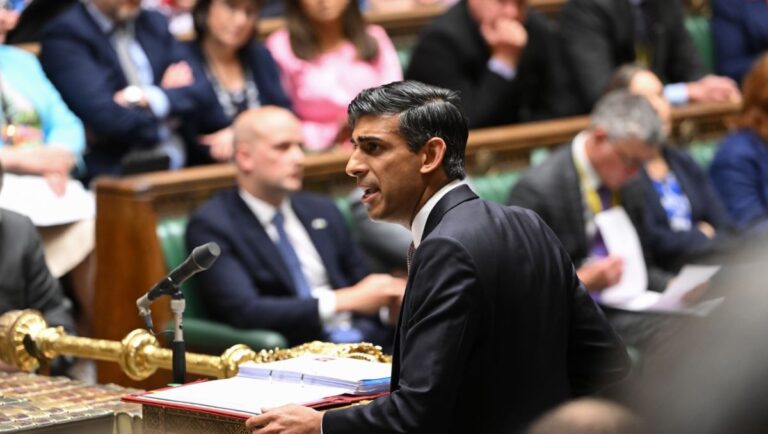On July 4th, the polls will open in the United Kingdom, with citizens heading to the voting booths a few months earlier than the natural end of the legislative term in December.
The current Conservative Prime Minister, Rishi Sunak, has decided to call for early elections and has announced his candidacy against Keir Starmer, the Labour leader who is currently favored in the polls.
Table of Contents
Sunak’s call for early elections
Sunak’s decision to hold early general elections in 2024 can be easily explained: he aims to maximize electoral gains from the latest economic data, which suggest a recovery in London following a difficult period — the country entered a technical recession at the beginning of the year. This is an attempt to stay competitive against the Labour Party.
However, according to the polls, the outcome seems clear, with Keir Starmer poised to become the next resident of Downing Street, potentially bringing Labour back to power 14 years after Gordon Brown’s tenure.
The 2024 UK elections will thus be a crucial turning point for the United Kingdom. Let’s take a closer look at the candidates, the electoral law, and what the polls are saying.
UK elections 2024: the candidates
The 2024 UK elections will be held on July 4th, with just under 50 million voters expected to cast their ballots to renew the House of Commons. The leader of the party or coalition that wins the majority automatically becomes the Prime Minister.
Therefore, party leaders are essentially the candidates for the role of Prime Minister, even though they are not directly elected. The incumbent Conservative Prime Minister, Rishi Sunak, intends to continue his tenure in Downing Street.
Labour, on the other hand, will field Keir Starmer as their candidate. The Scottish National Party, after recent turmoil, is now led by John Swinney. The Liberal Democrats will be represented by Ed Davey, who has led the party since 2020.
Surprisingly, Nigel Farage will be the candidate for the right-wing Reform Party, while the Green Party will be represented by a duo: Carla Denyer and Adrian Ramsay.
The UK Electoral Law
The electoral law in the United Kingdom for general elections follows the “first-past-the-post” system, a purely majoritarian voting system based on single-member constituencies.
To elect the 650 members of the House of Commons, the UK is divided into as many single-member constituencies, where the candidate – one for each party – who wins even one more vote than their opponent is elected.
As mentioned, the leader of the party or coalition that wins the majority in the House of Commons – 326 seats – becomes the Prime Minister of the United Kingdom.
As we saw in the last tumultuous legislative term – where the Conservatives went from Boris Johnson to Rishi Sunak via Liz Truss – if the leader of the ruling party changes, there is also an automatic change in the Prime Minister’s office.
UK elections 2024: the polls
The electoral polls for the 2024 UK elections have long been clear: Labour is significantly ahead of the Conservatives, with both Reform and the Green Party also gaining ground compared to the December 2019 vote.
According to a YouGov poll from May 16, Labour stands at 47%, more than double the votes indicated for the Tories. Recent judicial events have seemingly weakened the Scottish National Party (SNP), while Reform is in double digits.
The majoritarian electoral system, however, can lead to the paradox where a party, even if it achieves a commendable 20% nationwide, might not win in any constituency, resulting in zero elected MPs.
Local parties will also play a significant role. Besides the aforementioned SNP in Scotland, Plaid Cymru is strong in Wales, while in Northern Ireland, the contest is primarily between the Unionist Party and Sinn Féin.
According to the polls, Labour is expected to secure a commanding majority in the upcoming elections, with Keir Starmer likely to become the next Prime Minister of the United Kingdom.
Read also: Rishi Sunak is the richest PM ever: he is richer than King Charles












